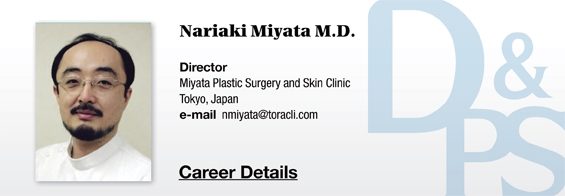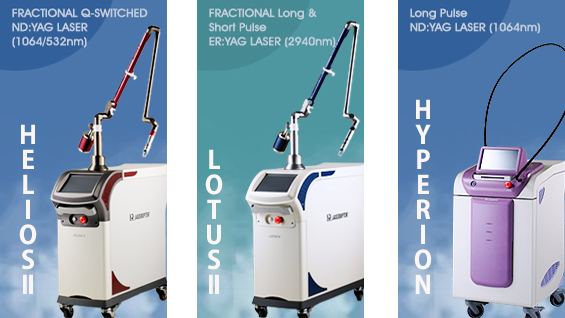
In the past, Japanese doctors thought thinner skin was more beautiful and recommended peeling. But thin and smooth skin stripped of the natural protective layer cannot be considered healthy. Unfortunately, some doctors still recommend long-term regular peeling without providing proper after care. Long-term peeling may initially improve the external appearance of the skin but eventually thins the skin and enlarges the capillaries, making the skin more sensitive and susceptible to troubles.
During consultation, I take sufficient time to carefully explain the importance of conserving natural skin oils. I use the example of washing a pet. If you shampoo your dog every day, his fur would become dry and frizzy. It is important to avoid removing all oils. Human skin also gets damaged from daily soap cleansing. Would frequent cleansing make the skin healthy? I am not saying that my patients should stop washing all together. But excessive washing does more harm than good.
Forcefully wiping the grease off the frying pan with a rough sponge will damage the coating. The best way to clean the pan is to soak the dirty pan in soapy water and gently rubbing the grease off. This logic can be applied to the skin. It is important to avoid abrasive cleansing and replenish lost oils with a moisturizer. The stains on a leather bag should be removed with oil or cream, not with water and soap. Human skin is more similar to leather than fabric.
HELIOSⅡ/LOTUSⅡ/HYPERION – Manufacturer: LASEROPTEK(www.laseroptek.com)
Considering the Japanese people’s tendency toward excessive cleansing, moisturization should be the core of skin care. In other words, infusion of nutrients is more important than peeling. As I have discussed earlier, regular electroporation should be performed to deliver low molecular hyaluronic acid or collagen to the skin and patients should be instructed on healthy cleansing habits. This can restore the healthy barrier of the weakened skin. Every time I see improvement from this method, I realize the harm of excessive cleansing.
Peeling can be effective when used properly. It is important to determine the right frequency of treatment for the patient’s age. If peeling is carried out more frequently than the regenerative cycle of the skin, the skin will eventually thin and weaken. The interval between peeling procedures varies for youthful skin and old, thinner skin that recovers more slowly.
This is where the doctor’s medical knowledge is needed. Many medical practices in Japan allow unlicensed and unqualified personnel to perform skin care procedures. This is also true in aesthetic salons. Unlike Korea where only licensed personnel are allowed to perform skin care procedures, Japan does not require medical license to perform treatments with dermatologic devices. Patients are attracted to unlicensed salons as they offer lower prices. This may not seem logical but the law allows them to do so. It is nearly impossible to obtain authorization of skin care devices from the Ministry of Health, Labour, and Welfare of Japan. Aesthetic salons obtain authorization for these devices from the Ministry of Economy, Trade and Industry. Some medical practices import dermatologic devices as aesthetic devices due to convenience of import process and marketing. This is why unlicensed personnel can perform dermatologic procedures using these devices. The Japanese aesthetic market is troubled by competition from aesthetic salons and unlicensed persons performing medical procedures.
-To be continued-




















